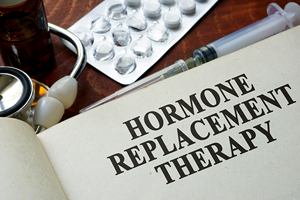Can Some Cancer Patients Take Hormone Replacement Therapy?
When someone receives the diagnosis of cancer, life changes forever. Just one minute before, that individual and her family led normal lives. Never more. They suddenly are flooded with questions. “What does this mean? What can be done? Do I need a second opinion? Do I need surgery, chemotherapy, radiation therapy, and/or immunotherapy? Am I going to die? And again, what did you just say?”
Menopause Transition: Don't Miss This Important Preventative Health Opportunity
Sometime between ages 45 and 55, for many women, gynecologic and related health issues begin to emerge. Menstrual cycles now seem different, mood swings and memory lapses appear, and sleep becomes more chaotic, coupled with warm flushes. And the weight! Why at the mid-section? These irritating acknowledgments belie a more ominous change. During this menopause transition, loosely referred to as “perimenopause,” events are unfolding that have an impact on a woman’s cardiovascular risk.
Let's Talk About Testosterone
Some sports figures have abused it. Many men with “low T” have used it. But most women have been refused it. While over 25 testosterone products in the United States are available to men, for women, there are no FDA-approved testosterone products. For vaginal atrophy and pain with intercourse, only estrogen creams or pills are recommended.
Is There a Window for Menopausal Hormone Replacement Therapy to Help Reduce the Risk of Dementia?
Dementia conjures up many images. As we age, we all worry that the momentary misplaced car keys or the questionable location of the parked car in a large lot may indicate early dementia. In reality, the early signs of dementia are more likely evidenced by putting the car keys in the refrigerator or forgetting how to drive to your familiar home.
Clarifying The Terms "Bioidentical Hormones" And "Compounded Hormones"
The terms “bioidentical hormones,” “compounded hormones,” and “compounded bioidentical hormones” often are used improperly in conversations between care providers and patients. But the fact that these medications even exist is a tribute to the evolving story of hormone development.





